Want to Help Others?
MindSkiller® can help you do that!
Whether you are a Clinician, Coach or Mentor, you can help others seeking Recovery, Resilience and Mental Fitness by enhancing their mental health literacy.
Education, training and guidance for all your mental health literacy needs.
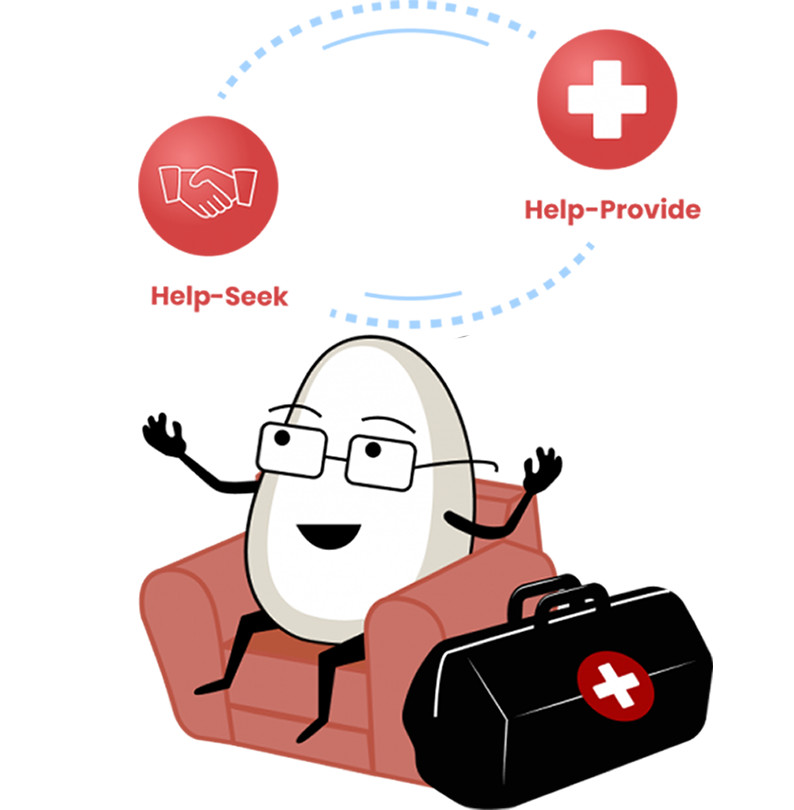
How MindSkiller® works for Mentors
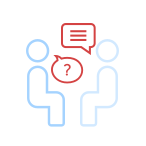
Mentors are Help-Providers with direct experience of mental ill-health: Peer supports, Carers, Family Members and Friends.
Mentors will love the engaging, logically-organised visual
content, with practical coping strategies.

Mentors can enhance the current models of healthcare by
delivering brief episodes of personal support and guidance
to Help-Seekers online using MindSkiller® CONNECT
Case Study: Sandy the Help-Seeker becomes a Mentor to Alex
Sandy was deeply depressed and couldn't understand why. Her mood had been so low for the last few months that she withdrew from her usual life activities. She didn't see a future for herself, felt lost, hopeless and even questioned the point of being alive. Sandy tried to end her life, triggering her first admission to hospital.
After that experience, she decided to prioritise her mental health. Her psychiatrist introduced her to MindSkiller® eLEARNING. When she began understanding more about her diagnosis, she found herself saying: “This is what I have been looking for. This is what I need!”
MindSkiller® eLEARNING introduced Sandy to a language that helped her better express her feelings, thoughts and needs. It reinforced her understanding about the coping skills she was learning about in her mental health consultations. It also encouraged her to Help-Seek when she felt overwhelmed.
Sandy asked her parents to look at MindSkiller®. That helped her feel more understood by her family and improved their communication around her mental health.
It gave Sandy a greater understanding of what was needed in her mental health management plan - including lifestyle factors, psychotherapy and medications. It improved her motivation to adhere to the plan. Her relationship with her family improved, she became more social and she enrolled in vocational study.
Sandy decided she wanted to become a Peer Support to help others struggling with their mental health. She contacted a well-known organisation to volunteer but they didn't have any positions. So she obtained a MindSkiller® Certificate 1 in Mental Health Literacy, which accredited her to serve as a Mentor to help others using MindSkiller® CONNECT.
The first person to CONNECT with her was Alex. After looking through MindSkiller® eLEARNING he realised that he didn’t have adequate ‘words’ to describe how he had been feeling, which contributed to his being overwhelmed. Sandy acknowledged Alex’s feelings and shared that she had also experienced a similar emotional reaction. Sandy discovered that helping others made her feel less isolated and improved her own mental health literacy even further.
How MindSkiller® works for Clinicians
Clinicians are Help-Providers with clinical expertise: Psychiatrists, General Practitioners, Mental Health Nurses, Psychologists, Psychoanalysts, Social Workers, Occupational Therapists and Dieticians
Clinicians will love the engaging, logically organised visual content with practical coping strategies

Clinicians can enhance current models of healthcare by delivering brief episodes of clinical support and guidance to Help-Seekers online using MindSkiller® CONNECT
Case Study: Henry, a General Practitioner, becomes a Help-Provider to Robin
Henry, a GP, has a long-term patient called Robin. Robin explained that he couldn't cope with exam stress and felt like a failure. He suffered panic attacks, had low mood, couldn't concentrate and was fatigued. Robin’s marks deteriorated and he feared he would fail his course. He was too anxious to face returning to university.
After Henry introduced Robin to MindSkiller®, he undertook eLEARNING while at home during sick leave. Robin authorised Henry to receive automated reports on Robin’s progress. The information was useful for Henry’s face-to-face consultations with Robin.
It was also useful for Henry to learn from Robin that, as a result of his eLEARNING, Robin discovered social anxiety was a likely contributing factor to his mental ill-health. Henry was relieved that his patient could receive extra support and guidance in between their consultations.
Robin used MindSkiller® CONNECT to reach out to a MindSkiller® accredited clinician online, who explained how specific types of psychotherapy could help him. This gave Robin the confidence to enrol in an online CBT course recommended by Henry. Henry had learnt about that course from MindSkiller® PLUS.
Henry and Robin discussed the role of medical interventions, which Robin had also familiarised himself with from the eLEARNING program. However, that proved unnecessary as Robin became well enough to return to his university studies.
How MindSkiller® works for Coaches
Coaches are Help-Providers with well-being counselling and training skills to assist with performance-enhancement: Personal Trainers, Counsellors and Case Managers
Coaches will love the engaging, logically organised visual content with practical coping strategies

Coaches can enhance current models of healthcare by delivering brief episodes of clinical support and guidance to Help-Seekers
online using MindSkiller® CONNECT
Case Study: Sally the Coach becomes a Help-Provider to Lexie
Lexie was diagnosed with panic disorder and alcohol abuse. She needed to take six weeks sick leave from work. Her GP wrote her a medical certificate and she was referred to a psychologist, who she attended weekly for therapy.
Her workplace referred Lexie to their employee assistance program and an external healthcare company offered her a Case Manager called Sally to support Lexie’s return to work. Sally was familiar with MindSkiller® having obtained Certificates 1 and 2 in Mental Health Literacy.
Sally introduced Lexie to MindSkiller® eLEARNING encouraging her to work through the general learning units and those specifically related to her mental disorders between her consultations with her Clinicians.
Lexie met regularly with Sally and they used MindSkiller® eLEARNING to improve her coping skills as well as identifying any gaps in Lexie’s management plan. Sally encouraged Lexie to enrol in a group therapy course at a private psychiatric hospital.
Lexie was grateful to her employer for arranging the MindSkiller® enhanced coaching to facilitate her support, recovery and return to work. Sally continued to support Lexie for another 6 months to help her work on improving her resilience and mental fitness.
MindSkiller® Accreditation
for Help-Providers
Attain up to 3 MindSkiller® Certificates whether you are a
- Clinician
- Mentor (including Peer Support)
- Coach
Here are the 3 types of MindSkiller® Certificate that can be attained
by completing the relevant learning units
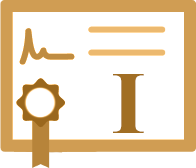
Certificate 1 in Mental Health Literacy
Complete all eLEARNING subunits in Unit 1 and associated
Knowledge Checks
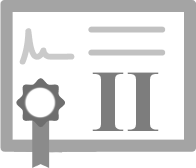
Complete all eLEARNING subunits in Unit 2 and associated
Knowledge Checks
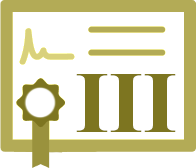
Complete all eLEARNING Subunits in Unit 3 and associated
Knowledge Checks and one associated Diagnosis Subunit
When Help-Seekers search for Help-Providers using CONNECT
they will be able to view the MindSkiller® Certificates that any
Help-Provider has attained.
